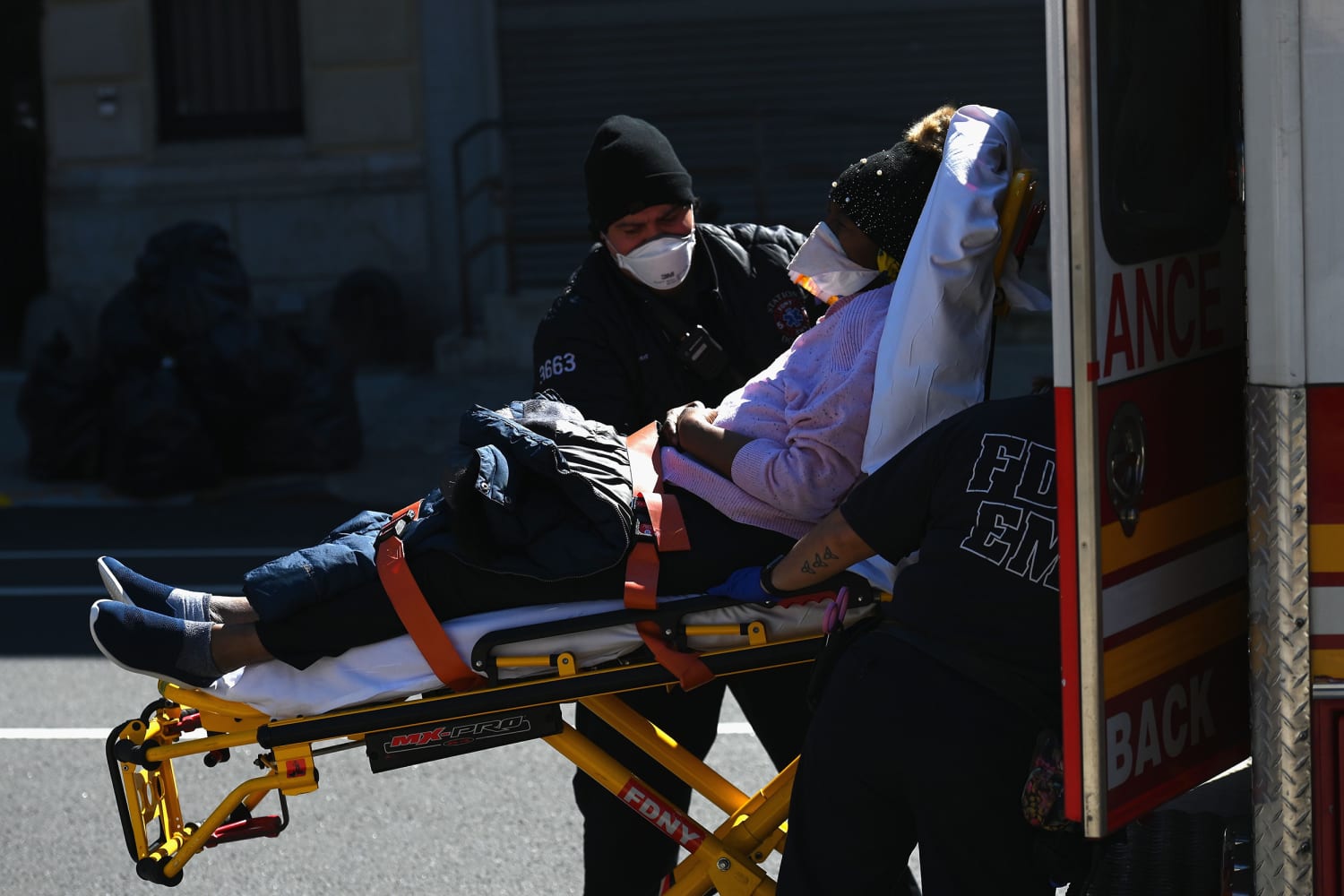Jason Harrison thought he was prepared for anything after more than 14 years as a registered nurse. But with Covid-19 cases rising to record levels and emergency room staff members out sick, he said, he may not be ready to deal with the frenetic pace in the ER at University of California, San Francisco Medical Center.
“People keep talking about hospitals not having room, but that’s not always the issue,” said Harrison, 43. “We could have 25 people waiting to come in, and we try utilizing every space we have, but sometimes we have to decide to close areas of the emergency room when there is no nurse available.”
The omicron variant of the coronavirus has spread throughout the country, and so has the subsequent labor crisis. With the current surge, essential workers are again bearing the brunt, and medical personnel are some of the record-setting cases.
“There are colleagues that either have Covid, had Covid or are not passing the [hospital’s] screening, which monitors symptoms or, at the least, exposure,” Harrison said. “It’s pretty dynamic, and we’re definitely not able to operate at our fullest.”
Hospitals, which reported staffing shortages last week, according to the Department of Health & Human Services, are just one of the services at the forefront of the labor shortfall.
Last week, as people waited for Covid tests in lines that wound down city blocks, CityMD, the privately owned urgent care clinic in New York and New Jersey, announced that it was temporarily closing 19 of its 150 locations because of staffing shortages. It closed more locations Wednesday.
Emergency Medical Service crews from New York City’s Fire Department are answering more than 4,000 calls a day, largely from people with Covid-19 symptoms, while 30 percent of EMS staff members are on medical leave, the fire department said.
“More than 100 emergency medical technicians (EMTs) were just put into the field from the EMS Academy to help with staffing,” a fire department spokesperson said in an email Thursday.
EMT shortages are not just a city problem, providers across the country say.
Dave Larsuel, the service director of Lake Mills EMS, a nonprofit ambulance service in Wisconsin, said a growing number of volunteers from his team of 24 have been taking leave. The service handles two to three calls a day in Lake Mills, which has a population of about 6,000, he said, and every call his team cannot take could lead to a catastrophic result.
But he understands why volunteers have been opting out, especially if they have medically vulnerable family members.
“They don’t get paid, and it does cause burnout,” said Larsuel, 55. “Especially when you have people who don’t believe in following [Covid] rules.”
Anna Bershteyn, an assistant professor of population health at the New York University Grossman School of Medicine, said that as Covid spreads more rapidly, health concerns should be observed in context.
“It comes down to, just like everything else, balancing the risks,” Bershteyn said. “So if we have large labor shortages, especially in health care, we have to balance trying to minimize transmission of omicron while not letting services fall apart.”
The Centers for Disease Control and Prevention announced Monday that “people with Covid-19 should isolate for five days,” reducing the quarantine guidelines.
Bershteyn said very regular testing should also be used if people are quarantining for shorter periods to reduce the risk of spreading infection. And, she emphasized, if tests continue to read positive, stay away from others.
“If you have access to testing, that’s a no-regrets thing to do,” she said.
Amie Mischel said she had taken extra precautions at work and that she is vaccinated, tests regularly and insists on wearing N95 masks as much as possible. She is an immunocompromised emergency department nurse with multiple sclerosis and diabetes. Many of her colleagues have tested positive or have been exposed to Covid-19, forcing them to miss work, and Mischel is afraid she will be next.
That fear has not stopped her from doing her job — and then some.
“On occasion, I will stay a couple hours over to help get a patient settled and stabilized, because that’s just what you do,” Mischel, 50, said over the phone. She said she was looking forward to sleeping before her next 12-hour shift.
Source: | This article originally belongs to Nbcnews.com










